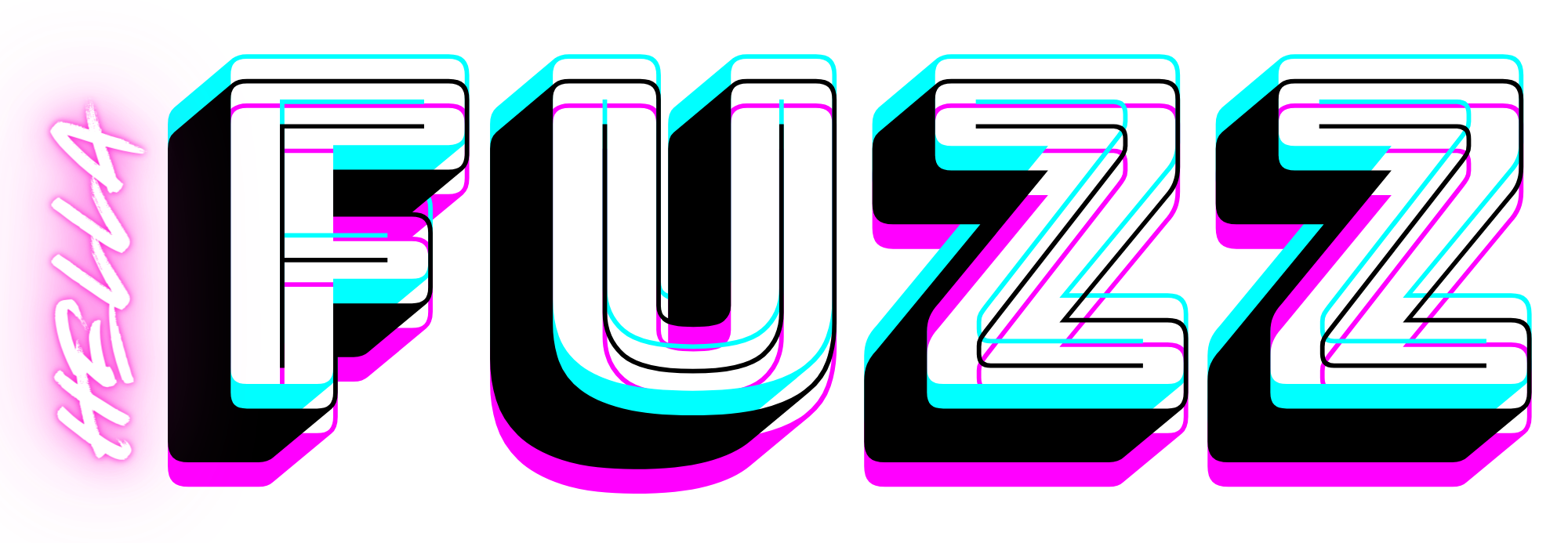
Interview with Lana Crow
What’s the story behind your latest song/album?
‘I Do’ has definitely had a long journey—it’s probably the song that’s grown with me the most. It all started years ago with a vivid dream where I heard this chorus melody with two lines: ‘I will. I do.’ At the time, they made no sense to me, but because the song woke me up, I felt like there was a reason behind it I couldn’t ignore. So, at around 5 a.m., I grabbed my phone and recorded the rough idea before it disappeared.
At first, I turned it into a song called ‘I Will’ about a love that grows out of a friendship—something I’d never experienced myself, but I’ve always been fascinated by those beautiful stories of people who’ve known each other since their teens and then build a life together. I was super new to songwriting and production, so that first version took over two years to finish. It finally came out in 2024 as my very first release… but honestly? I wasn’t fully happy with it, and I guess I always had this intention of re-writing it.
Then, 2 years later, something clicked. I remembered my wedding—some time before my hubby and I exchanged vows, the priest explained we could choose between saying ‘I will’ or ‘I do,’ depending on how we saw that commitment. He actually recommended ‘I will,’ so that’s what my husband and I both said. Years later, those two phrases from the dream suddenly made perfect sense: ‘I will’ as the promise, the intention… and ‘I do’ as the living, everyday yes.
So I went back to that original melody, expanded it, completely rewrote the lyrics, and turned it into ‘I Do.’ Now it’s really a love letter to my husband—the most patient, incredible man. Like when insomnia hits me hard and I’m losing my mind in the middle of the night, he’s just there, calm, helping me through it without ever making me feel like a burden. I’m endlessly grateful for him.
In a way, this song shows how much I’ve grown as a songwriter and singer over those couple of years—from that uncertain first attempt to something that feels truly honest and lived-in. It’s about choosing each other every single day through the messy moments as much as the happy ones.

How has your creative process evolved over the years?
Over the years, I’ve started spending more time with each song. My first album was very sporadic and kind of careless—I’d just go with whatever came to me in the moment and move on quickly. But I’ve realized that when I sleep on some melodies and lyrics, I can make them better.
I’m not a patient person, though, so I still go through phases where I rush things.
Is there a specific moment in your career that felt like a turning point?
The real turning point came when I found services that handle media coverage. I’m terrible at social media, so having someone write about my music and then share it felt like a massive leap forward. Suddenly, my work had that credibility boost it needed.
I’m also very happy with my current producer, George Harris, who I found last year, and my mixing engineer whose name I don’t even know—he goes by the pseudonym CeePee.
What’s one misconception people have about being a musician?
I’m not sure about others, but my own personal misconception was that you can actually make money just from releasing music. Nope—not unless you’re very famous.
Who or what has been inspiring your music lately?
My main inspiration has always been to create music that helps people feel happier. We all know that happiness is a state of mind, but not everyone knows how to get there. From my own experience, I’ve found that a positive state of mind becomes easier to achieve when you take responsibility for what happens to you. Playing the victim never helps. When you blame others for your troubles, it just builds a grudge that consumes you. People can be hurtful, but if you start to see their actions as a reflection of your own state of mind, the problem becomes easier to overcome, and you feel more in control. I try to put that message into my music, and hearing that it’s made a difference for people is what means the most to me.
Can you share a memorable or unexpected moment from a live performance?
I’m afraid I don’t do live performances. You have to have a ton of stamina to pull that off, and I just don’t have it. I was practically raised on antibiotics—every sneeze was a prescription party. As a result, honestly, I’m not the healthiest person.
How do you handle creative blocks or self-doubt?
I haven’t really experienced creative blocks. Whenever I set the intention to write a song, it usually just comes to me. Self-doubt used to be a big challenge, but I’m slowly getting over it through a natural process of self-acceptance. The longer you do something, the more confident you become.
If you could collaborate with any artist, living or dead, who would it be and why?
I’d collaborate with Axl Rose from Guns N’ Roses. When I was younger, I had a huge crush on him! 😀
What’s a piece of advice you wish you had received earlier in your career?
I wish someone had told me to find a producer online earlier. I had no idea that was an option, so before my first song was released, I spent almost two years going back and forth with a local producer, which really stretched out the process.
What’s next for you—any exciting projects or goals on the horizon?
I don’t have anything specific planned at the moment. Life’s been pretty busy with other things, so I’m just taking it one step at a time for now.
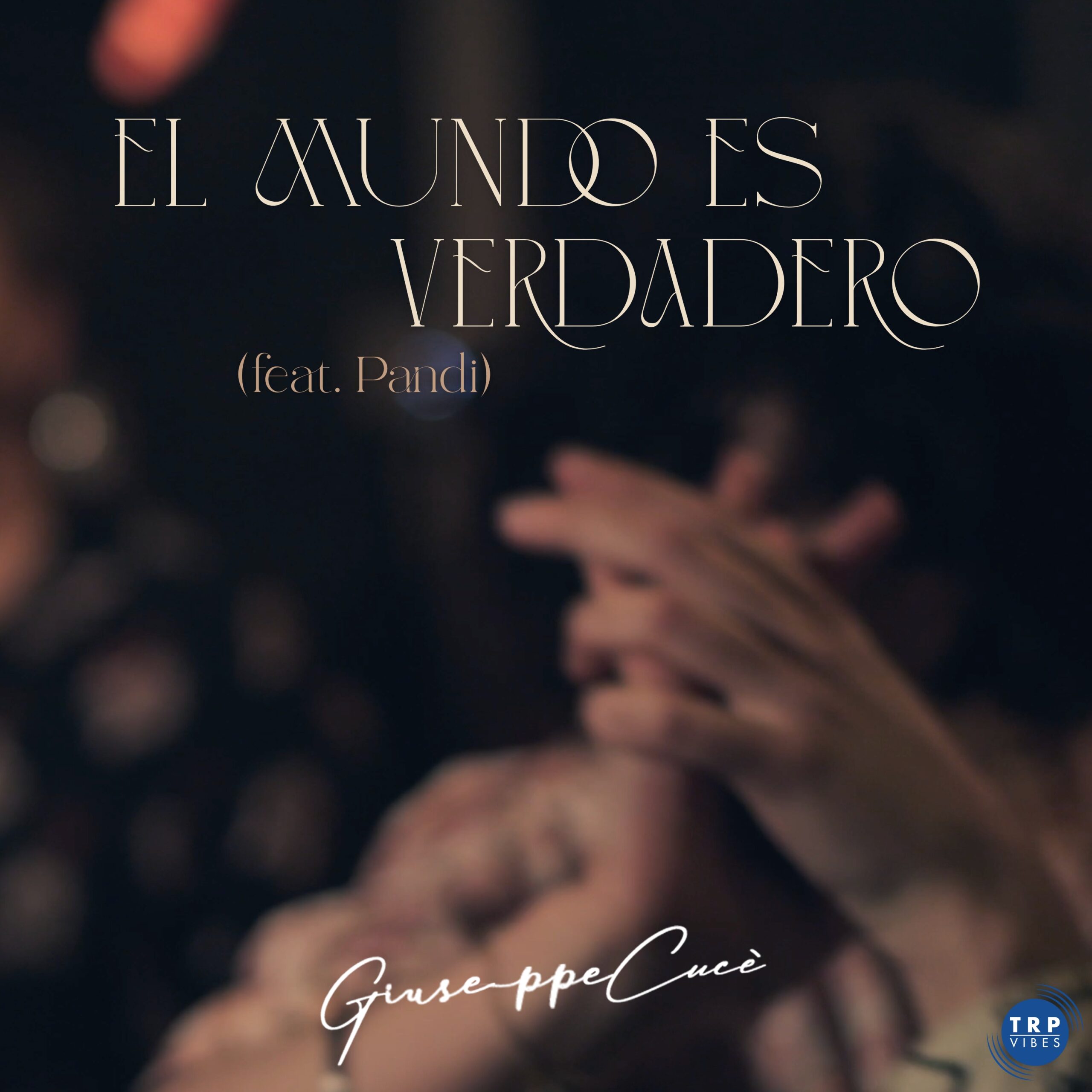
Interview with Giuseppe Cucè
What’s the story behind your latest song/album?
El mundo es verdadero was born from the need to strip reality of its masks. It’s a song about desire and truth — the kind that isn’t comfortable, but necessary. The track moves through raw emotion and Latin-tinged rhythms to tell a story of exposure: when illusions fall, the world doesn’t become easier, it simply becomes real.
How has your creative process evolved over the years?
Over the years, my creative process has become more essential and more honest. I’ve moved away from trying to explain everything and focused instead on listening — to silence, to instinct, to what remains after the noise fades. Today I write and arrange music as a form of excavation: removing layers until only what’s necessary and true is left.
Is there a specific moment in your career that felt like a turning point?
Yes — the turning point wasn’t a single event, but a decision. The moment I stopped measuring my work by external recognition and started trusting my own sense of truth. From there, every choice became clearer: the music, the collaborations, the silence between notes.
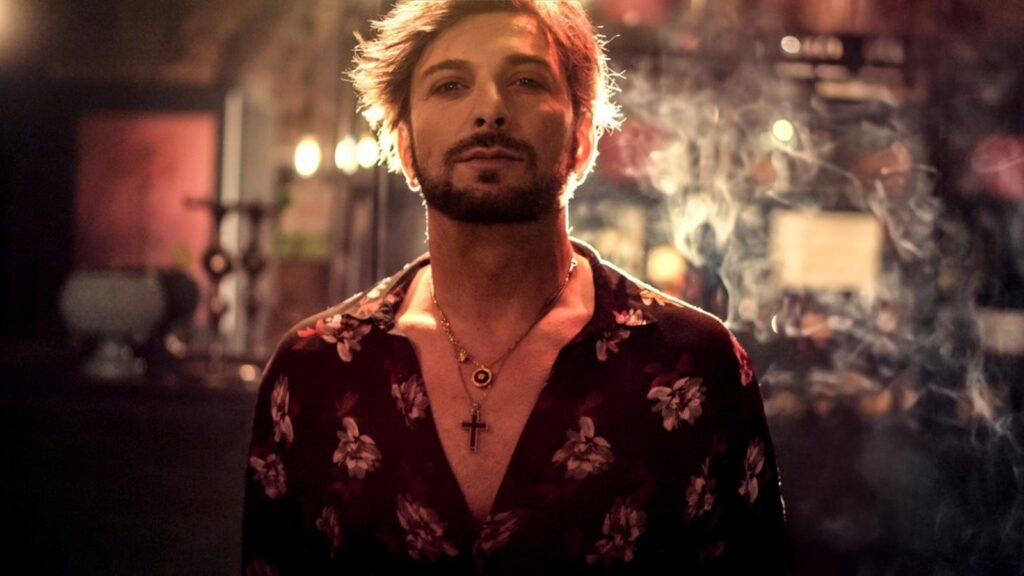
What’s one misconception people have about being a musician?
One common misconception is that being a musician is only about inspiration or visibility. In reality, it’s mostly about discipline, doubt, and long periods of invisible work. The art people hear is just the surface — the real journey happens far from the spotlight.
Who or what has been inspiring your music lately?
Lately, I’ve been inspired more by states of being than by specific artists — silence, distance, desire, and the fragile moments when truth reveals itself. I’m drawn to what happens in between things: after the noise, after the celebration, when masks fall and something real remains.
Can you share a memorable or unexpected moment from a live performance?
During a live show, someone once stayed completely still through the entire set — no phone, no applause, just listening. At the end, they came up to me in silence, hugged me, and left without saying a word. It reminded me that sometimes the deepest connection doesn’t need explanation.
How do you handle creative blocks or self-doubt?
I don’t fight creative blocks anymore — I listen to them. Self-doubt often signals that something needs time or honesty. Stepping away, allowing silence, and trusting the process has become part of the work itself.
If you could collaborate with any artist, living or dead, who would it be and why?
I would choose Leonard Cohen — not to add something to his work, but to remove everything unnecessary. His way of turning vulnerability into form, and silence into meaning, deeply resonates with how I approach songwriting today.
What’s a piece of advice you wish you had received earlier in your career?
I wish someone had told me that consistency matters more than intensity. That building a body of work takes time, patience, and the courage to stay when enthusiasm fades. Talent opens the door — staying is a choice.
What’s next for you—any exciting projects or goals on the horizon?
Right now, I’m focused on letting 21 Grammi continue its journey — through live performances, international listening spaces, and deeper connections with audiences. At the same time, I’m already writing again, without urgency, allowing the next chapter to take shape naturally rather than forcing it.
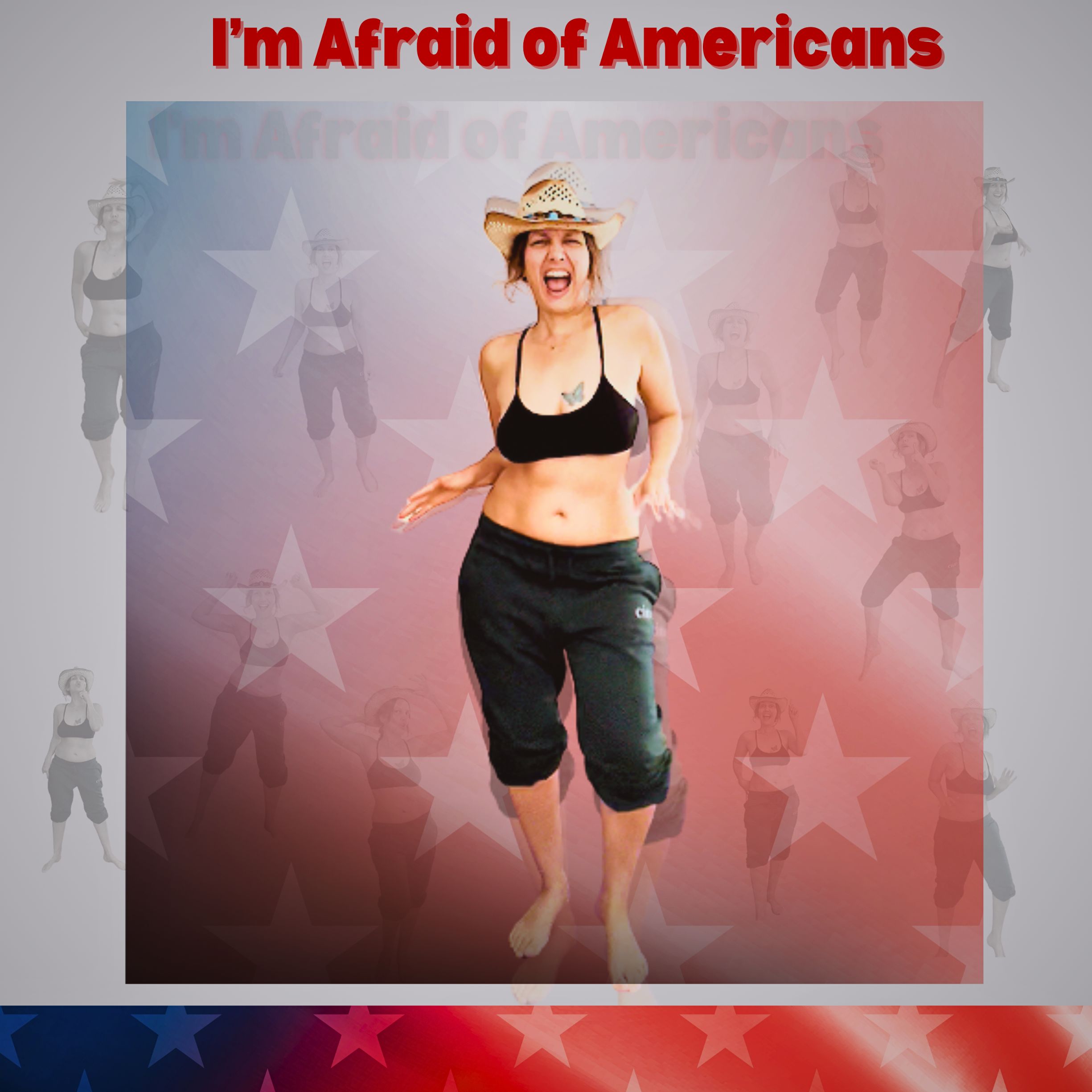
Layla Kaylif – I’m Afraid of Americans
East Meets Edge: Layla Kaylif’s Bold Reimagination
Layla Kaylif’s reinterpretation of I’m Afraid of Americans is a striking exercise in cultural translation, transforming the iconic David Bowie and Brian Eno track into something both unsettling and hypnotically current. From the very first notes, Kaylif’s infusion of Middle Eastern musical textures creates a sonic landscape that feels simultaneously intimate and expansive. Oud-like string motifs intertwine with subtle percussive layers, giving the song a rhythmic pulse that is both meditative and urgent.
Kaylif’s vocal delivery is confident and nuanced, carrying a weight that honors the original while asserting its own identity. There’s a quiet tension in her phrasing, a push-and-pull that keeps listeners on edge without ever feeling forced. Producer Johan Bejerholm’s arrangement amplifies this effect, balancing traditional Western instrumentation with Middle Eastern inflections, resulting in a soundscape that is culturally rich and sonically adventurous.
What makes this version especially compelling is its timeliness: releasing on the tenth anniversary of Bowie’s passing, Kaylif manages to evoke a sense of reflection and contemporary commentary simultaneously. The track isn’t just a cover—it’s a recontextualization, offering listeners a fresh lens through which to experience a familiar piece of music.
I’m Afraid of Americans stands out as a bold, immersive journey. It’s the kind of track that invites repeated listening, revealing new layers with every spin. Layla Kaylif demonstrates not only technical skill but a fearless artistic vision, proving she can take a classic and make it resonate in a completely new way.
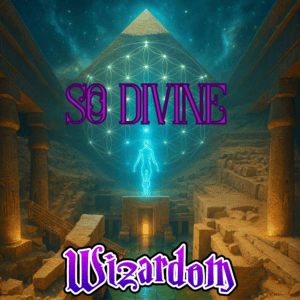
Interview with Wizardom
What’s the story behind your latest song/album?
‘So Divine” is the second track from my future second album. I wrote the first version of this song in 2009 and like some of my songs it was sitting there till it was the right time to share it. Last year I revised and recorded it , then went into the recording studio to record the final version. This song came to me when I was questioning life and wanted to take responsibility for my life, not wait for outside sources ie God, people or organisations to do it for me but to initiate/take action. The quote “If it is to be it is up to me” resonates for me and in this song.
How has your creative process evolved over the years?
My creative process has been not consistent. I only write or perform when I feel called/inspired to share. I have gone through many periods where I have not written anything or performed. I don’t force the creative process. It is like I channelled or wrote songs, poems or content ahead of time and when they are ready, sometimes many years later, they become perfect for the times we are in or the message I want to share.

Is there a specific moment in your career that felt like a turning point?
Before 2018 I was singing covers in my own name at open mic’s, music school and small performances. I then had a dream of the character/image of the wizard and the name “Wizardom’ came to me. This was the turning point for me. I then decided to sing my originals under the “Wizardom’ name and did my first performance, a one man show called “Ageless” in Dec 2019, which was a mixture of speaking and singing. From then on I have recorded and performed under the “Wizardom” name and brand.
What’s one misconception people have about being a musician?
That you have to follow a certain path to be successful or only have one source of income. There are many ways to share your music or message and I even have creative outlets/business that are non music related, whether it is a job (which I still have one for the time being). Many well known musicians, act, write, sell merchandise and do other things to either support them financially or to have variety in their life.
Who or what has been inspiring your music lately?
Reading, watching inspiring movies, content, TV, other creative people and my own self/soul development has infused my music recently. My newer songs are about what I am going through or have learnt in my own current healing journey/experience.
Can you share a memorable or unexpected moment from a live performance?
My most memorable live performance was my first performance as “Wizardom” in Dec 2019 for my one man show “Ageless”. I did the show myself without much assistance and learned a great deal of what to do and not do for future shows. It was also a chance to declare/birth the character/brand ‘Wizardom”, to share my original songs and be vulnerable speaking and singing from the heart.
How do you handle creative blocks or self-doubt?
I will take a break from my creative process or what I am working and then come back to it when I am ready. For me rest, holidays and taking breaks is important in general for my life but especially when I feel blocked. With self doubt, I realise that I have to love what I have to share and that the music/content/other products/services will be found by the right people when the time is right. To persevere and just keep showing up even when it seems/or feels like know one is listening, commenting or liking.
If you could collaborate with any artist, living or dead, who would it be and why?
I like the electronic Australian band ‘Empire of the Sun”. I have a similar vibe to them so would love them to produce my future music and/or chance to sing with them on the same concert or festival lineup would be amazing.
What’s a piece of advice you wish you had received earlier in your career?
To be yourself, unique and not follow the path of everyone else. There are so many artists that are similar and my quietness, weirdness and what i thoughtr were weaknesses will be what sets me apart from others.
What’s next for you—any exciting projects or goals on the horizon?
In 2026 I will keep sharing new singles. I also want to return to performing live and touring outside of my city of Melbourne, Australia, as my last show was Dec 2023. To also write new songs, a book, documentary/concert film and other music and non music products and services.
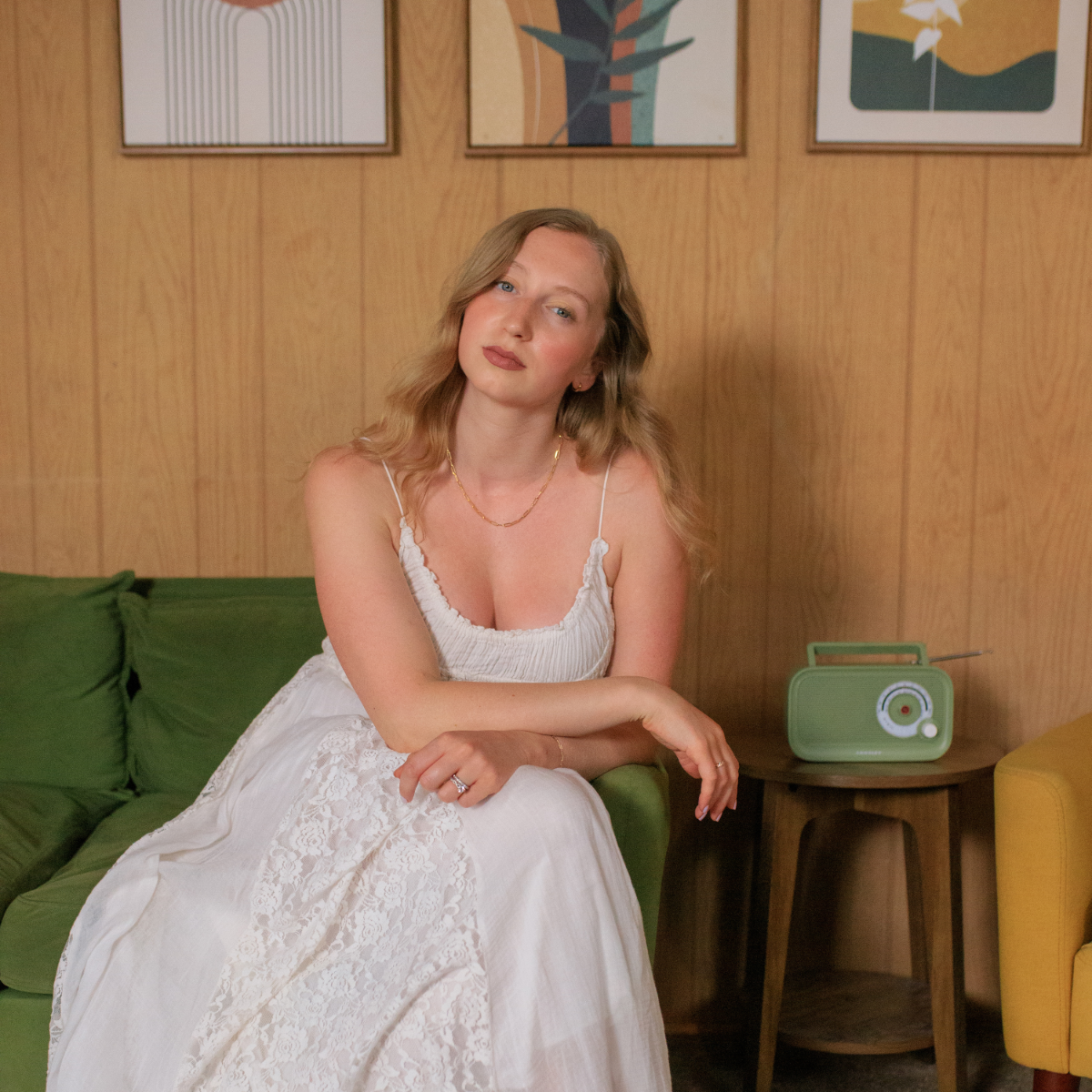
Interview with Tatum Treffeisen
What’s the story behind your latest song/album?
I actually started writing “Turn Back” years ago but I never did anything with it… never recorded it or played it for anyone. It was just one of many songs hanging out in my songbook that I didn’t think were worth bringing out into the world. But this year, I woke up one morning with the chorus of “Turn Back” in my head and I thought… hmm, I kinda like this… maybe it’s worth playing around with again. So, I rewrote the song. The chorus stayed exactly the same but the verses and bridge completely changed to reflect my life now: what I’ve been through and where I am as a songwriter. Working on “Turn Back” felt like collaborating with my younger self, which was a beautiful experience.
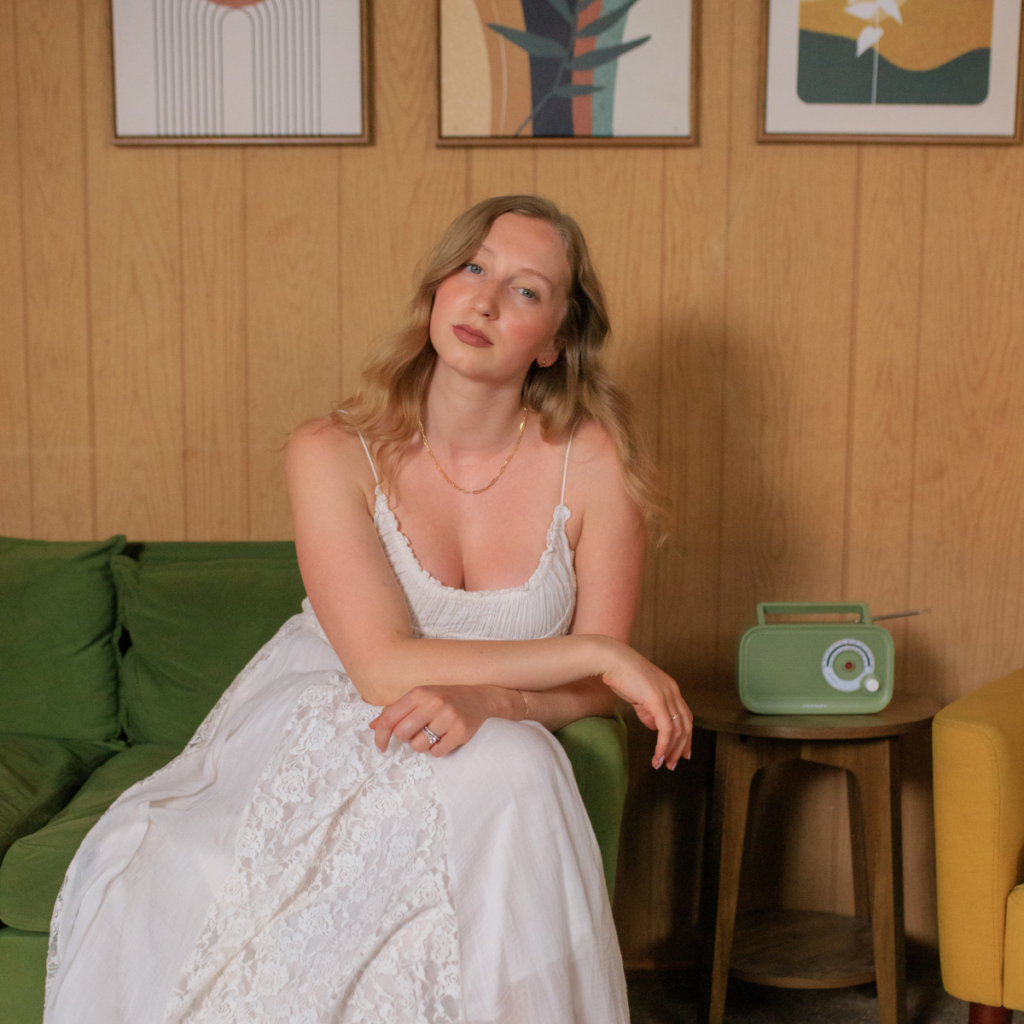
How has your creative process evolved over the years?
My songwriting process has remained pretty consistent. My best songs come quickly, they pour out of me. I nail the melody and progression of the song first and then focus on building out the lyrics. Lately, I’ve been working on expanding my creativity and being open to all the creativity that lies inside me and that can flow through me. I’m reading the book, “The Artist’s Way” by Julia Cameron and giving myself support and permission to nurture my artist child and reach my creative potential. It may be too early to say but I feel like it’s already working… (new song coming in 2026 that I’m REALLY excited about).
Is there a specific moment in your career that felt like a turning point?
This year, I’ve consumed a lot of material that basically told me… you can’t live your dream life if your fear of judgement is stronger than your desires. This was a huge turning point for me in how I approach my music and everything that goes along with it. I’m an indie musician, and I’m a team of one. I wear so many hats as singer-songwriter, producer, promoter, publicist, admin, stylist, content creator, etc. A lot of what I do involves sharing myself with people and in today’s world, it feels like no matter what anyone does, there is someone who has something negative to say about it. I used to let that fear keep me contained. I used to let it keep me quiet about what I want and who I am. But I’m not afraid anymore, because my dreams are stronger than my fear of judgement. This is a super important realization for me not only when it comes to music but for many aspects of my life.
What’s one misconception people have about being a musician?
I think a lot of people don’t know that production is what makes a song. Yes, the bones of the song are crucial but it’s the production that people fall in love with, and there are so many production decisions that can transform the trajectory of a show. It’s incredible to me. That’s what I love producing my own music and learning more and more about it.
Who or what has been inspiring your music lately?
Other artists! I LOVE music, and I spend so much time listening to it. This year especially, I’ve been listening a lot to Lorde, Ariana Grande, sombr, Mon Rovia, RAYE, Tame Impala, BANKS, Djo, Renee Rapp, Demi Lovato… I could go on and on. And there’s something in each artist that inspires me whether it’s their honest lyrics, vocals, production, performances, etc. It’s their uniqueness and creativity that inspires me to find that in myself.
CONTACTS: Instagram

Interview with Transverse
What’s the story behind your latest song/album?
The story behind my latest song (I Know) is a suicide day prevention song. It is about not letting the past hurt your future. A lot of people tragically end their life due to past regrets. With vocals and help with the lyrics provided by Mycal Timara, her and I wanted to make something that will really resonate with people.
How has your creative process evolved over the years?
My creative process has evolved exceedingly over the years. In fact, just my creativity has grown in general. I started out producing on Soundtrap studio, and using loops to create my tracks. Over the years, I slowly transitioned to using FL Studio’s sounds and making my own loops and such to create my tracks in there. Now I fully use FL Studio, with using Soundtrap to record vocals, and I am still learning all around. Looking forward to continuing to grow even more using cool features on that software too.

Is there a specific moment in your career that felt like a turning point?
Throughout my career, I have had multiple moments where things have just clicked it felt like. One specific moment where it felt like a turning point was where I released my very first song with vocals in 2019. Before that, I was making EDM instrumentals, and when I had that song with vocals, it really resonated with people ALONG with the sounds I use to produce. That was my big moment where it felt like this is what I was meant to do. I then later on released probably my most iconic track to this day, “You & I” with vocals provided by N!kk!.
What’s one misconception people have about being a musician?
One misconception is that no musician has ever made their first track perfect. You grow over time. Even your first few tracks, as you continue to make songs, may seem like they are not good, but it’s because you are still learning and still making progress. Even the top, most successful musicians, have tracks that are better than others, which means there’s not really a perfect song. You can make something SOUND objectively perfect, but even that takes a lot of time and effort. So, perfectionism is a myth for beginners.
Who or what has been inspiring your music lately?
Lately, I’ve been getting inspired a lot by SABAI. I love his emotional styles drops and beautiful soft melodies that just make everything feel like it’s going to be alright. I’ve always been inspired by The Chainsmokers (especially their old style), or Lauv, but lately it’s definitely been SABAI’s music.
Can you share a memorable or unexpected moment from a live performance?
An unexpected moment from my first ever live performance is I performed with Katherine, and my cousin who filled in for other singers who couldn’t be there, and we performed at a Church prom, where they set up “a night in Paris” theme or something like that. At the end of my set, we were getting done performing “You & I” and Katherine did a super cool spin. Now, this is barely noticeable on the actual performance video but if you see it, it’s really funny where she spins and accidentally knocks down a bit of the set piece in front of her, to which she quickly stops and kind of makes a surprised face. I didn’t notice it while we were performing, but afterwards, she told me about it and we laughed for a while, cause that was definitely unexpected and memorable.
How do you handle creative blocks or self-doubt?
How I handle creative blocks or self doubt is by keeping the end goal in mind. I believe that regardless of what genre I am supposed to make, what my music is supposed to sound like, or simply if I am even supposed to be making music, I remember I know I am meant to help people. Help people with whatever they need in their life simply by the vibes of my music. It helps me keep on going when I get stuck on a song, or stuck deep in a self-doubting hole which people may be surprised to know that it actually does happen a lot, and every time the reminder of helping people that I give myself, ALWAYS helps.
If you could collaborate with any artist, living or dead, who would it be and why?
If I could collaborate with any artist, I think I would either say Rosé or Justin Bieber. Rosé has a really solid tone in her voice that I feel would work really great with my styled beats, and Justin Bieber, I am personally a fan of his and believe he is one of the best singers today, and I think with the emotion he puts into his tracks, we would make something really cool together.
What’s a piece of advice you wish you had received earlier in your career?
A piece of advice I wish I had received earlier would definitely be to not overdo things. A lot of my fans know about this certain thing for me, as I have mentioned it before, but it really is so important. I wish I knew that you didn’t have to overdo compression, or equalizing, or limiting to make something loud ALL the time. Otherwise, the whole track either sounds lifeless, harsh or worse, at points both, which is sometimes what would happen to me haha. You just have to apply enough effects to things, to make them sound good. If it sounds good, it works, and if everything that you put into a track sounds good together, then it definitely works and that’s really most of what any beginner needs to know at the start.
What’s next for you—any exciting projects or goals on the horizon?
Next for me is actually working on remastering old projects that I made a long time ago. I’ve already started on some and it’s been pretty fun getting to go back and hear the old things I used to do when making music and also getting the chance to turn my old idea into how I want my music to sound currently. I’ll be releasing these projects in the near future, and I can’t wait for people to hear them.
